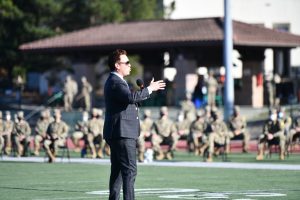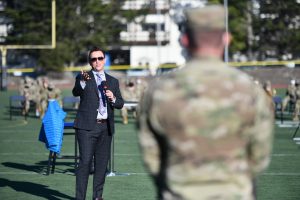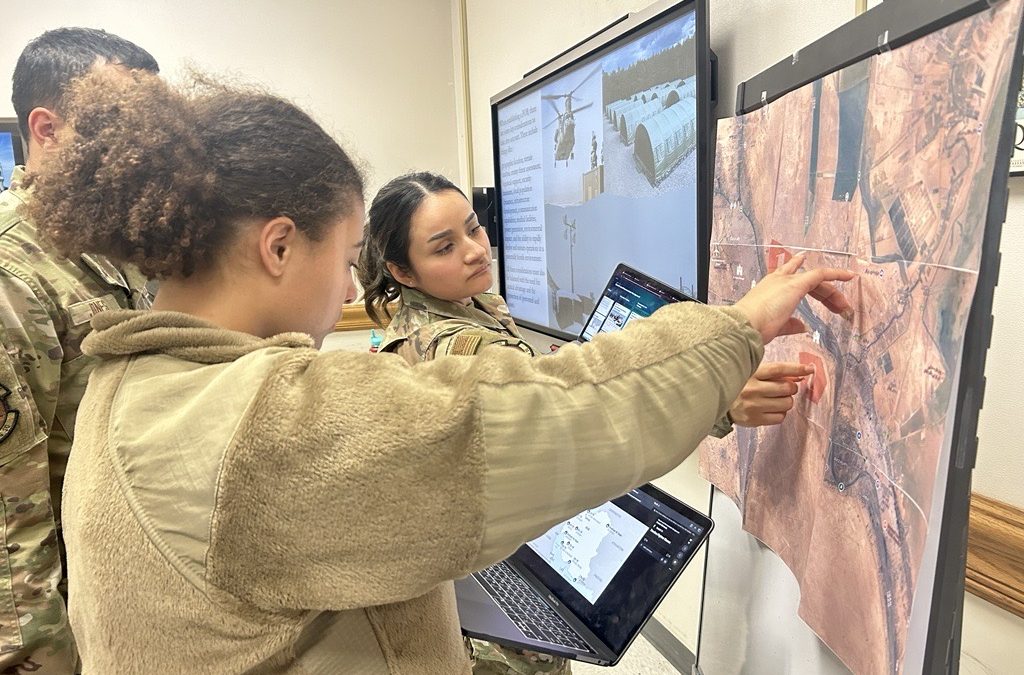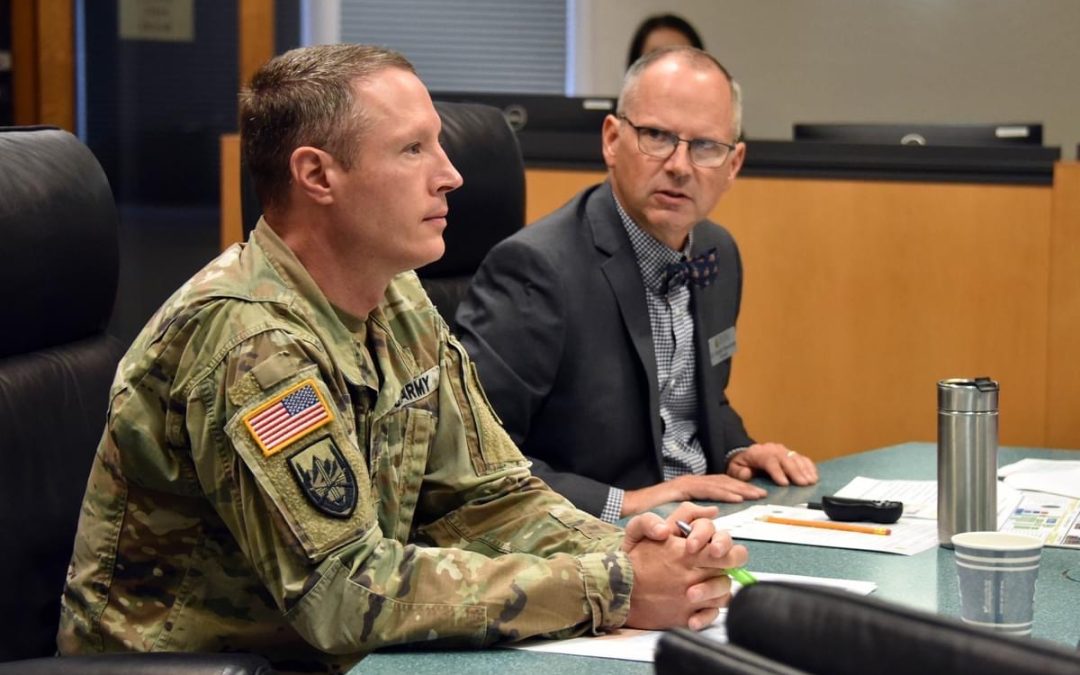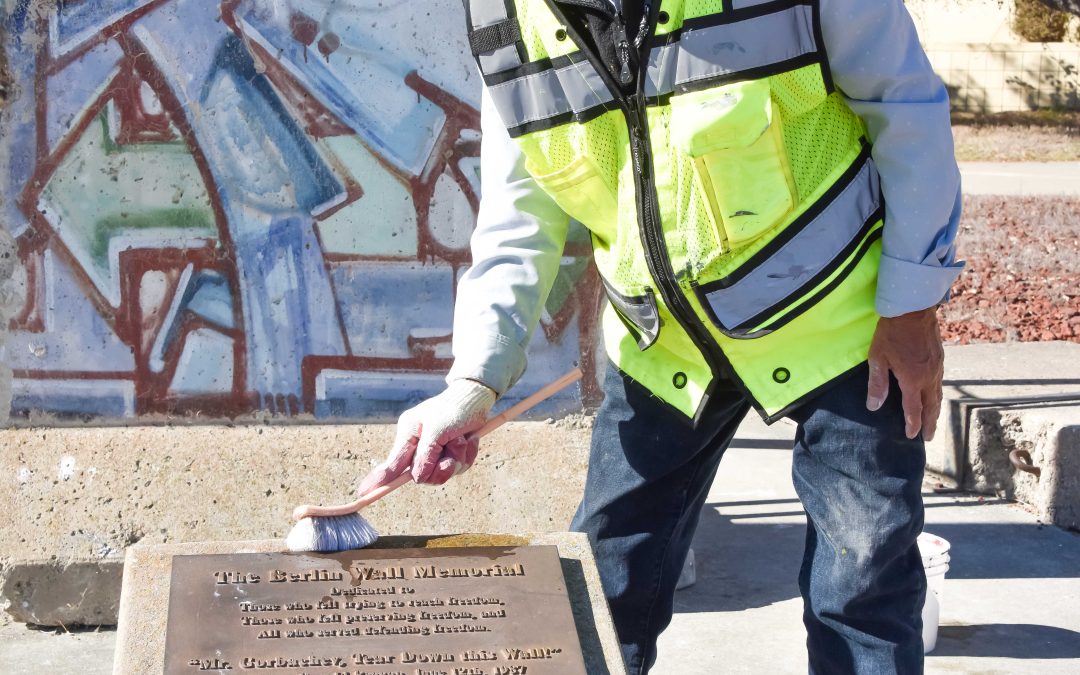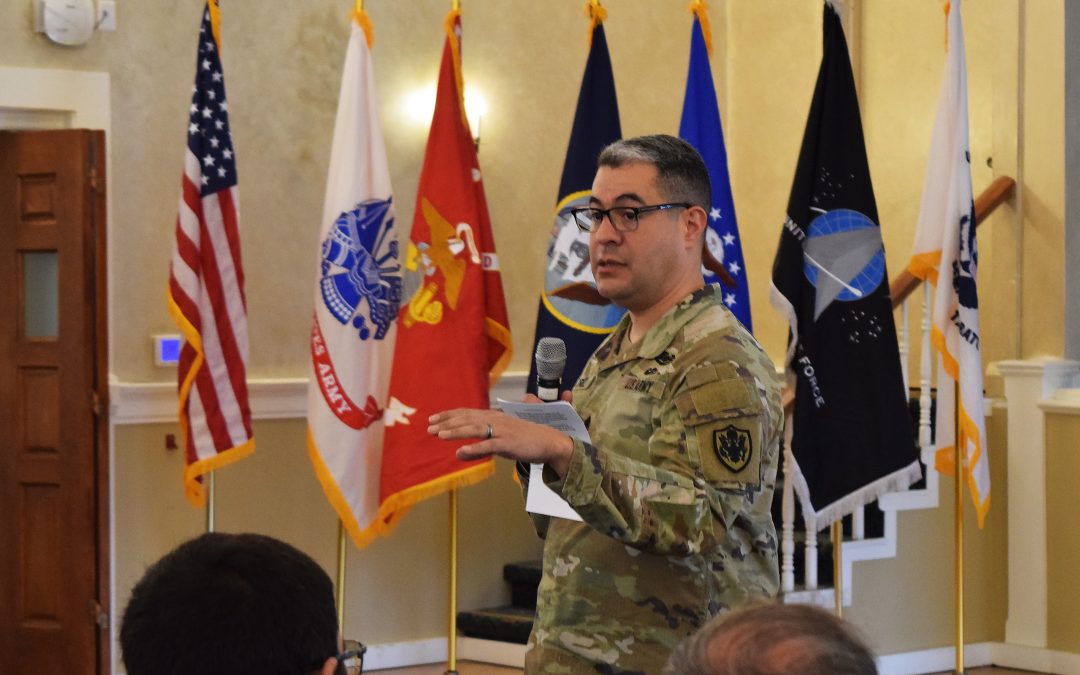By Natela Cutter
In a world where attitudes are impactful, motivational speaker Jeffrey Bucholtz spent two days interacting with Defense Language Institute Foreign Language Center students Dec. 8 and 9, to bring to their attention how mindsets affect people’s behavior toward sexual abuse, harassment and violence.
On Dec. 8, Bucholtz held a virtual presentation for more than 2,800 service members who were able to listen to the event online. The following day, Bucholtz held three separate question and answer sessions with Army, Air Force, Navy and Marne Corps foreign language students to provide answers to their questions about sexual assault and harassment.
In the smaller in-person event on Dec. 9, Lt. Col. Matthew Upperman, commander of the 229th Military Intelligence Battalion, addressed a several hundred masked and socially distanced service members at Price Fitness field. “Sexual assault in our formations is a very real thing. We have to have zero tolerance and be open to talk about it at every level.”
“All of you are the change makers – you have to carry it forward for the future of our Army,” said the 229th MI BN Command Sgt. Maj. Lourdes Barragan, in her introductory remarks. “There is a long way to go. If you see something, say something. If you see it at your level, you have to quash it. We have to take care of our brothers and sisters and all of us need to take care of each other,” she said.
Service members posed profound questions about how they can help those who were faced with sexual assault and harassment as well as how to change the culture they live in. Questions included: “How should we respond when people view the topic of sexual harassment/assault as something to joke about?” and “How do we effectively change the culture within the military when members still consume mass media that spreads many stereotypes of hyper-masculinity and the objectification of women?”
Bucholtz spoke about the importance of sexual consent, how to support those who have been sexually assaulted and how to reframe cultural attitudes. He urged service members to not be afraid of opening up the conversation with friends and family in order to point out how laisse fare attitudes can promote harmful behavior.
“Calling someone out is basically about you disrupting the behavior by (saying), ‘Dude, that is not cool.’ When talking to friends and family and not wanting it to be awkward… try to ‘call them in,’ so that
you give them space to change,” Bucholtz recommended.
“His message is thought provoking and challenges our cultural norms,” said DLIFLC Commandant Col. Gary Hausman. “He is engaging, but in your face and forces discussion on hard topics.”
Hausman took on some of the more difficult questions that involved the several ways of reporting sexual assault and harassment in the military. “Victim advocates, health workers, chaplains … they all have to treat you anonymously and we have a process … The restrictive reports provide anonymity and the idea is to empower the victim to determine what information is shared.” Reassuring the audience, he said, “If you are afraid or concerned about retaliation, send me a direct email. I am committed to helping you and protecting you.”
The training came on the heels of the conclusion of a criminal investigation at Fort Hood, Texas, that looked at a widespread pattern of violence, sexual assault and harassment within the Army ranks. Some 14 officers and enlisted Soldiers were relieved of their duties after the death of Spc. Vanessa Guillen and several other incidents on the installation.
“In a world of respect, everything is better. It feels like we are not being good at finding ways to see value in those who are different from us…If you want an America that has no sexual assault, you have to build one that is more equitable,” said Bucholtz in his closing remarks.

